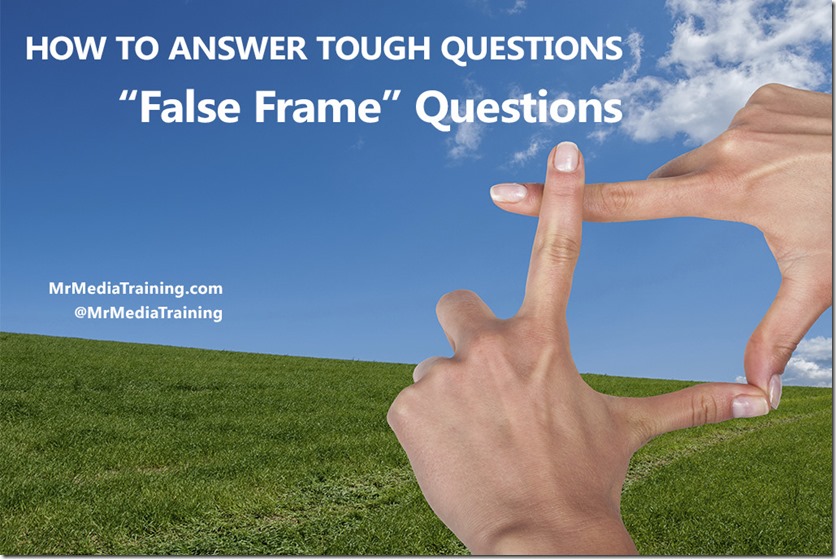How To Neutralize Tough Questions
Critical comments and tough questions have a way of putting us instantly on the ropes.
Is it your tendency to quickly stammer out a less-than-satisfactory response, fueled solely by a defensive reaction?
One of the more effective things you can do when caught in such a predicament is to strip tough questions of their negative language, even as you answer the heart of the critique or concern.
We call that neutralizing the negativity, so you can respond without rancor or defense. The heart of the approach is to listen carefully to the central concern and recast it in neutral language.
Behind this technique is an effort to depersonalize and defuse a difficult situation.

How to Answer the Tough Questions
We offer several examples of where this technique will help. (The words that are likely to get our defenses up are in bold.)
Question: Why does your product cost so much?
Response: Let’s talk about how we determine our product’s price.
Question: Why did you fail to meet your numbers last quarter?
Response: Let’s talk about the challenge we faced last quarter and why we expect stronger results next quarter.
Question: Why were you so slow to respond?
Response: I’d be happy to address the external factors that impact our response time.
Question: Why should we pass new legislation that benefits wealthy venture capitalists?
Response: The question about who the new legislation benefits is an important one. And it will benefit far more people than one might initially suspect.
Question: The new sales commission policy is completely unfair.
Response: Let’s discuss the thinking behind our new sales commission policy.
When you take the negative out of the equation, you go a long way toward reducing confusion, correcting incorrect assumptions, and responding quickly and efficiently to what, at their core, are valid concerns (or, at the very least, are valid concerns for the questioner).
And, when you take your pride out of the equation – when you decide not to take it personally – your answers are not the result of a wounded ego, but a clear-headed professional.


